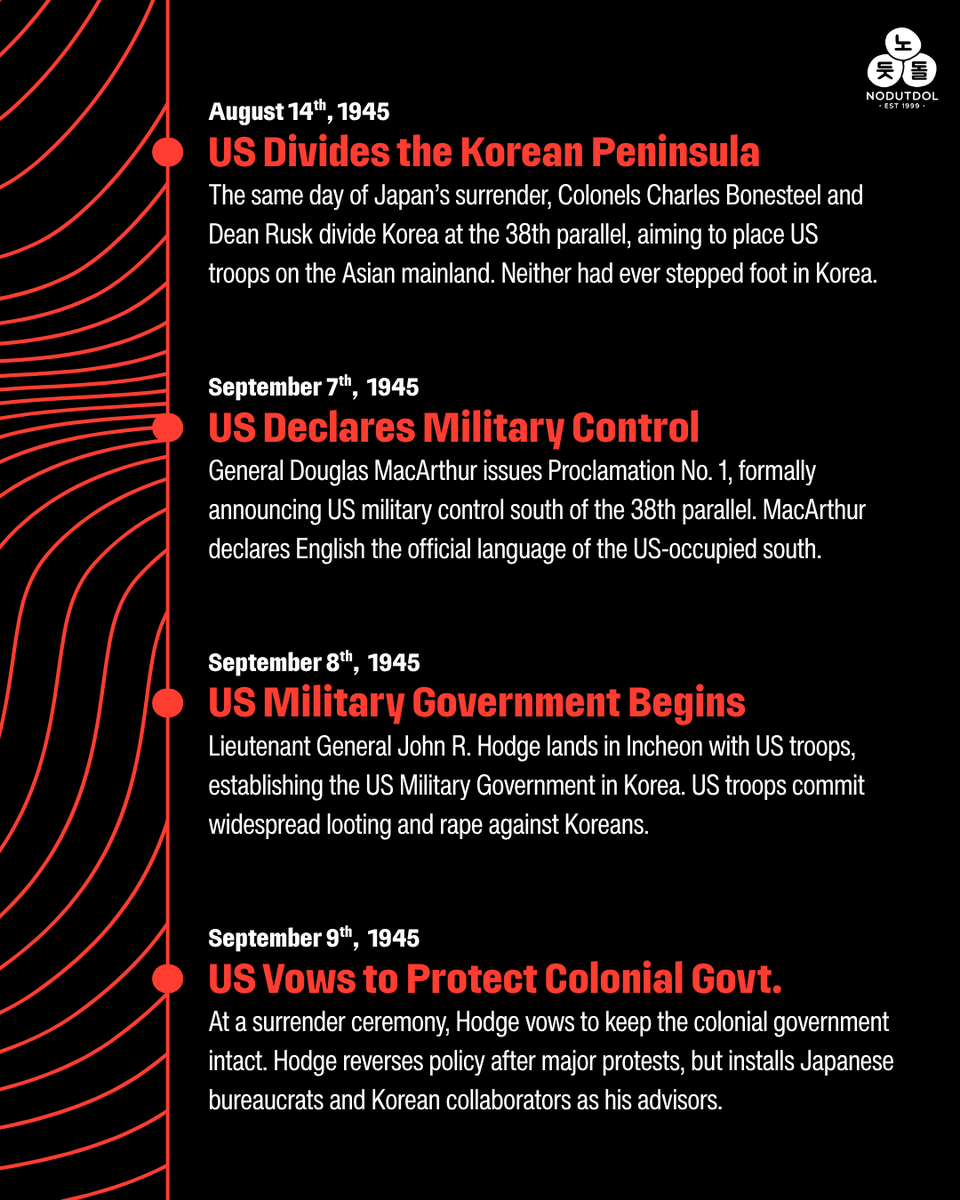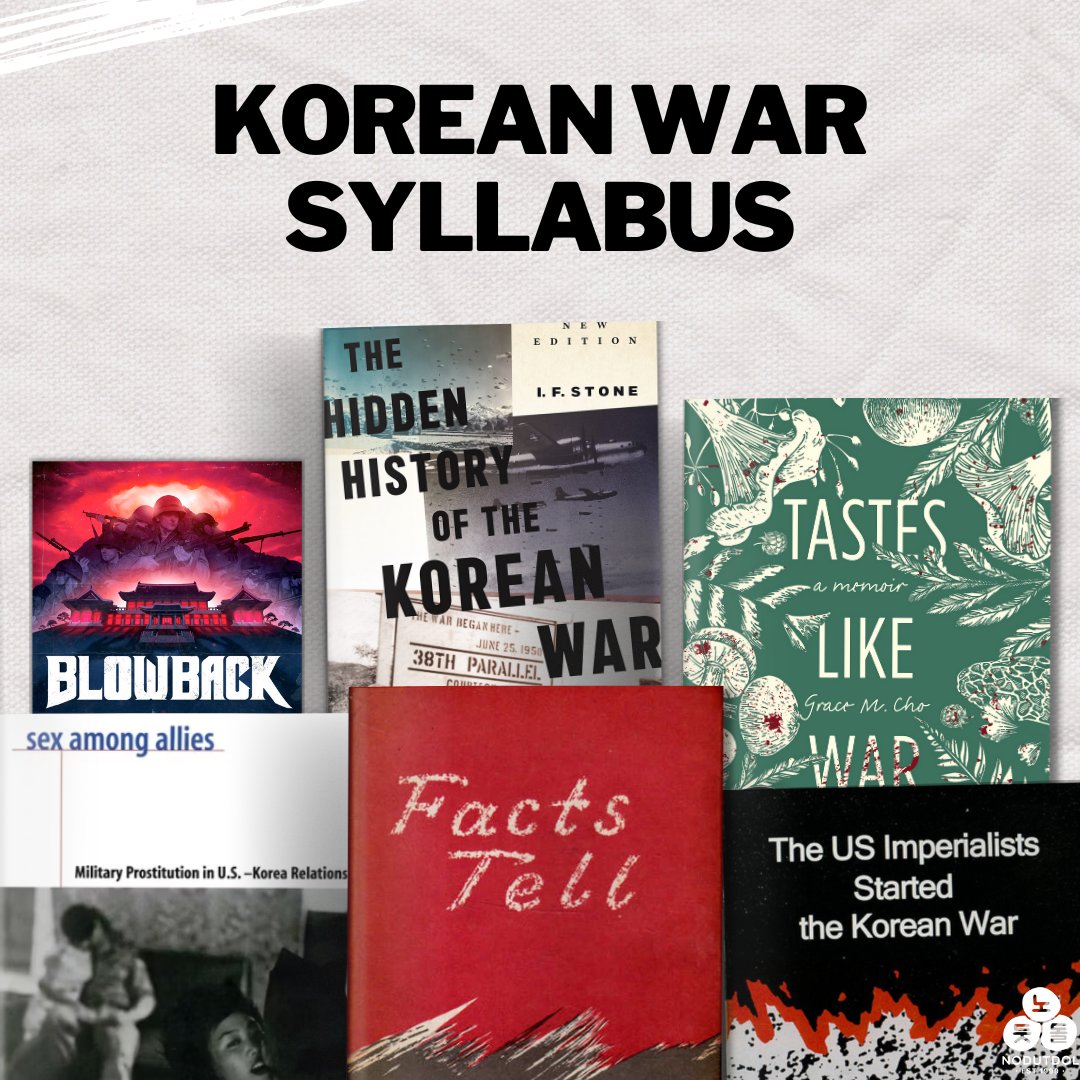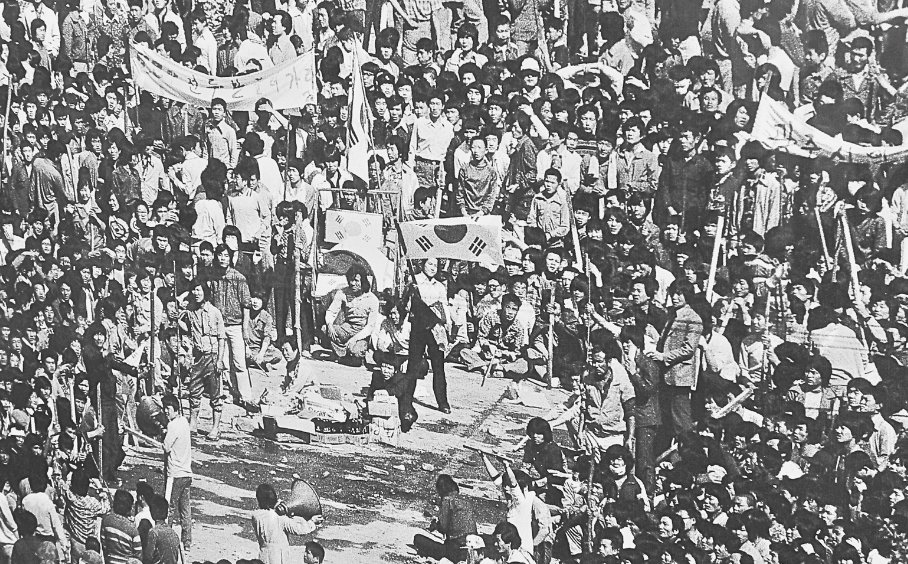#SquidGame is sweeping the globe. But how does this show reflect the real south Korea? Here's a look at the real events and dynamics echoed by the shows events and characters: from the debt crisis rocking south Korea to the real "VIPs" who run the country.
⚠️Spoilers ahead!
⚠️Spoilers ahead!
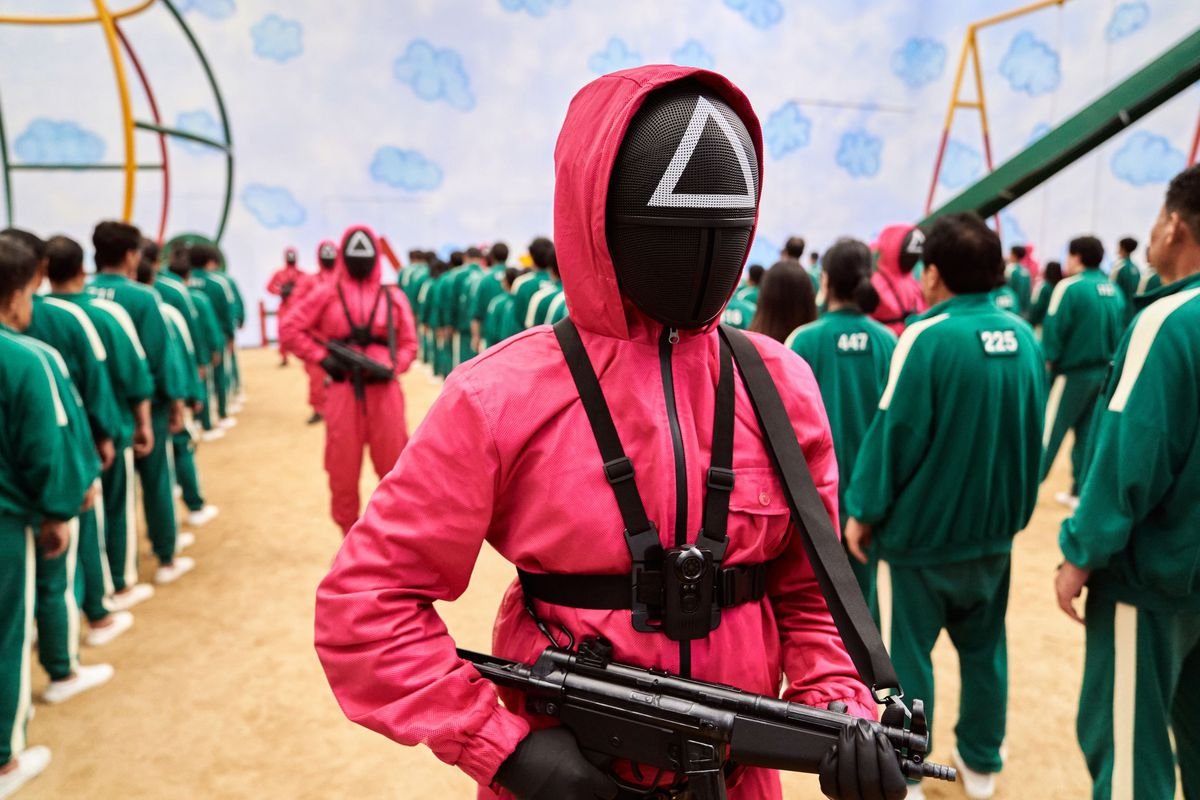
Squid Game's premise echoes real events in south Korea's history. Countless wartime massacres were committed by the US and ROK and hidden from public knowledge throughout the 20th century.
https://twitter.com/nodutdol/status/1378401391245418500
In the 1980s, over 60,000 people were imprisoned in concentration camps under Chun Doo-Hwan's "Social Purification" campaign. Victims were often houseless, orphaned, and disabled people. 

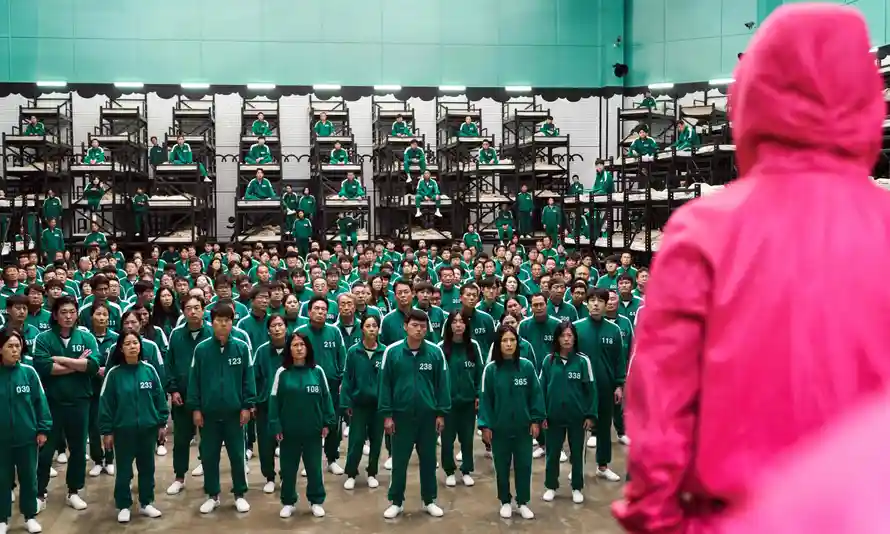

TW: police violence
Gi-hoon's backstory alludes to the 2009 Ssangyong Motor Strike, when 900 workers occupied their factory for 77 days to protest job cuts.
Gi-hoon now survives by taking odd jobs, or as an "irregular worker." Over 40% of ROK workers are irregular workers.


Gi-hoon's backstory alludes to the 2009 Ssangyong Motor Strike, when 900 workers occupied their factory for 77 days to protest job cuts.
Gi-hoon now survives by taking odd jobs, or as an "irregular worker." Over 40% of ROK workers are irregular workers.



Migrant workers from non-western nations form a super-exploited strata in south Korea. Whether they have temporary visas or no papers, these migrants live at the mercy of their employers.
Since 2015, at least 522 workers from Thailand alone have died on the job in south Korea


Since 2015, at least 522 workers from Thailand alone have died on the job in south Korea

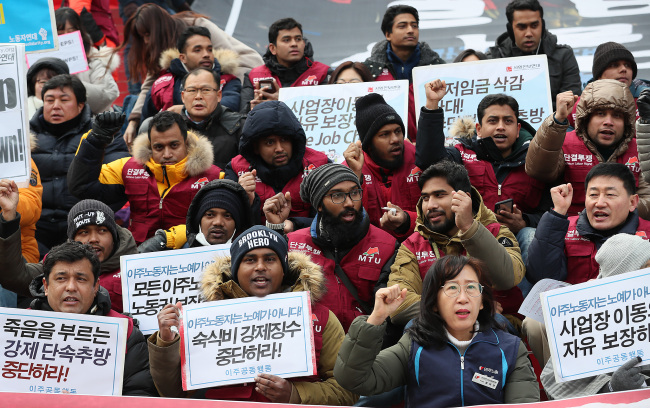

TW: sexual violence
Migrants or "defectors" from north Korea also face discrimination and exploitation in the south.
70% of the 33,000 DPRK migrants are women, and 1 in 4 report experiencing sexual violence. Many cases involve ROK intelligence agents assigned as their handlers.


Migrants or "defectors" from north Korea also face discrimination and exploitation in the south.
70% of the 33,000 DPRK migrants are women, and 1 in 4 report experiencing sexual violence. Many cases involve ROK intelligence agents assigned as their handlers.



TW: suicide mention
Despite south Korea's appearance of prosperity, most households are in serious debt. Household debt is 105% of GDP, the highest of any Asian country.
Household debt averaged 190% of household earnings in 2019, almost double the US average.


Despite south Korea's appearance of prosperity, most households are in serious debt. Household debt is 105% of GDP, the highest of any Asian country.
Household debt averaged 190% of household earnings in 2019, almost double the US average.



TW: suicide mention
South Korea's senior citizens are especially impacted by privatization of healthcare and real estate under capitalism. Many elderly people are unable to afford medical care or housing. About 50% of all senior citizens live in poverty.


South Korea's senior citizens are especially impacted by privatization of healthcare and real estate under capitalism. Many elderly people are unable to afford medical care or housing. About 50% of all senior citizens live in poverty.



Organized crime has often been used by landlords, companies, and the govt for everything from evicting tenants to breaking strikes.
In 2009, President Lee Myung-bak mobilized "private security forces" to brutally evict street vendors from the Insa-dong district in Seoul.


In 2009, President Lee Myung-bak mobilized "private security forces" to brutally evict street vendors from the Insa-dong district in Seoul.



The show's desperate guards may allude to south Korea's system of mandatory military service for all persons assigned male at birth.
Just as Squid Game's guards ultimately serve the VIPs, South Korea's 600,000 active-duty troops serve under the operational command of the US.


Just as Squid Game's guards ultimately serve the VIPs, South Korea's 600,000 active-duty troops serve under the operational command of the US.



Just as the mostly white VIPs run the game thru the Front Man and the guards, monopoly capital uses native "front men" to run south Korea.
By 2004, 44% of the Korean stock market was foreign-owned. Under the 2007 FTA, US corporations can contest south Korean laws they dislike.


By 2004, 44% of the Korean stock market was foreign-owned. Under the 2007 FTA, US corporations can contest south Korean laws they dislike.



Not everything in this thread is explicitly referenced in this show. Nevertheless, an analysis of the role of imperialism and neocolonialism in south Korea's economy is essential to understanding the crises it faces today.
Sources: asia.nikkei.com/Spotlight/Asia…
hani.co.kr/arti/english_e…
koreaherald.com/view.php?ud=20…
reuters.com/article/us-tha…
npr.org/2019/09/17/761…
reuters.com/article/us-sou…
channelnewsasia.com/commentary/net…
theguardian.com/world/2021/oct…
statista.com/statistics/111…
ncbi.nlm.nih.gov/pmc/articles/P…
hani.co.kr/arti/english_e…
koreaherald.com/view.php?ud=20…
reuters.com/article/us-tha…
npr.org/2019/09/17/761…
reuters.com/article/us-sou…
channelnewsasia.com/commentary/net…
theguardian.com/world/2021/oct…
statista.com/statistics/111…
ncbi.nlm.nih.gov/pmc/articles/P…
Sources (continued):
deepblue.lib.umich.edu/bitstream/hand…
fpif.org/south-korean-l…
libcom.org/news/death-tol…
arkansasonline.com/news/2011/jul/…
nytimes.com/2004/07/20/opi…
deepblue.lib.umich.edu/bitstream/hand…
fpif.org/south-korean-l…
libcom.org/news/death-tol…
arkansasonline.com/news/2011/jul/…
nytimes.com/2004/07/20/opi…
• • •
Missing some Tweet in this thread? You can try to
force a refresh



